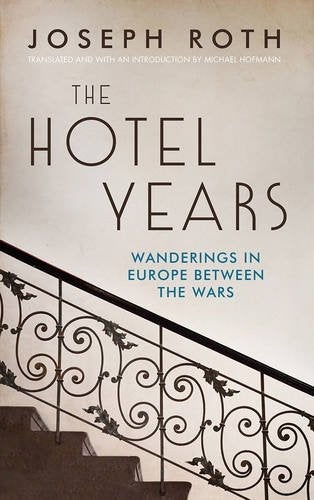The Hotel Years, by Joseph Roth - book review: Cameos in a lost continent
(Translated by Michael Hofmann) Granta - £16.99

Joseph Roth is best known for his novel The Radetzky March, about the decline and fall of the Austro-Hungarian Empire. Born into a Jewish family in Galicia in 1894, he worked as a journalist for the Frankfurter Zeitung, among other newspapers, travelling across Europe until the rise of fascism forced him to leave Germany.
This collection of his journalism, 64 feuilletons, mostly set in Europe between the world wars, creates a vivid sense of a continent on the brink of change. Roth’s translator, Michael Hofmann, has grouped his work by country, including Albania, Austria and the USSR; and by theme, including “hotels” and the vicarious “pleasure and pains” of Roth’s itinerant existence.
Roth’s acute observations on Albania could describe any dictatorship today. Of “urban Albanians”, he writes: “They seem to have given up all their own opinions, and only listen to those of others .… In place of political convictions there is political partisanship, instead of struggle conspiracy, instead of a word a hint, instead of caution fear. In this land no ruler is safe, and no subject either.”
Roth spent so much time living in hotels that he declared himself “a hotel citizen, a hotel patriot”. Highlights include his portraits of the staff of an unnamed European hotel in 1929, transporting the reader to a now vanished world. The chief receptionist has a “gift of switching almost instantaneously between fury and graciousness, indifference and curiosity, aloofness and anxiety to be of service”. By contrast, the ancient waiter “is well on his way to petrification … He walks from the knees down, his feet take tiny shuffling steps. If someone is in his way, he will stop, a mechanism stalls, and you think you hear somewhere under the tails that a little cog has suddenly ground to a halt. Then he starts to move again. A quarter of an hour later, the old man reaches the restaurant.”
In 1934, Roth wrote: “A country where bad things happen and more bad things are prepared than in any Hell’s kitchen no longer deserves to be called a fatherland.” The collection’s final piece, published in 1931, where Roth describes losing his cradle aged around three, serves as a prescient summary of the loss of a homeland: “I am left feeling sad, inconsolably helpless and sad. I seem to understand that I have lost something irrevocable. I have been in a certain sense robbed.” He severed all ties with Germany in 1933 and died in exile six years later.
Subscribe to Independent Premium to bookmark this article
Want to bookmark your favourite articles and stories to read or reference later? Start your Independent Premium subscription today.

Join our commenting forum
Join thought-provoking conversations, follow other Independent readers and see their replies